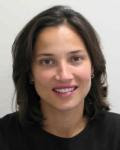It was June of 1998 and I was 24 years old, about to end my 2 year commitment to work and live in rural Namibia in the Peace Corps and I was travelling across South Africa. In Durban my friends and I were walking back from the beach and in front of us was a 100+lb. monitor lizard meandering down the sidewalk. I know most Americans’ images of Africa include animals but this is Durban…an eclectic modern African city. The home to the best surf in Africa, a vibrant Indian population and the descendants of Shaka himself, all overlaid with a British colonial veneer. We followed the lizard and soon a young guy with his arms and neck sleeved in tattoos grabbed him and picked him up like a sack of potatoes and slung him over his shoulder. Wouldn’t you want to know more? We did, and one thing led to another. In about 3 hours I had my first tattoo, an arm band around my left bicep with a female symbol in the middle.
I got my tattoo in the only Hell’s Angels tattoo parlor in Africa (not that I am particularly proud of that but it is an interesting fact) from Ricky, the son of the founder of the club and the parlor. Anyone with a tattoo knows they will be asked in that awkward interaction ‘what does it mean.’ Usually I am asked by an acquaintance and I wiggle to feel out how much this person wants to know, how much I want them to know, and how much they can ‘handle to truth,” to quote Colonel Jessop in A Few Good Men. I often think “you don’t want to know the truth because deep down in places you don’t talk about at parties you want me to have this tattoo, you need me to have this tattoo." In actuality, I usually say an ambiguous line that hints at depth but provides none, like “I got it at a time in my life that I was feeling really good about being a woman.”
I started at Creighton 5 years ago and attended my first Psychology Honor Society Christmas Party. I didn’t know the students too well and I was just getting to know my colleagues, who at this point in time had seen my tattoo. It was an intimate party with 15 students and 10 or so faculty. We were all chatting when the conversation quieted for a moment. Then a student, that I didn’t know very well said with a giggle, “Dr. Brown, we were all wondering what your tattoo means”. ……..the music stopped, everyone was looking at me. I was speechless.
When I got the tattoo I didn’t have the language to describe it. The complex motivations were all there but not the language to pull them together and share them. It was how I lived then, feeling my way through life. Since, I have had the privilege to slow down and study, quieting myself enough to think about the meaning of many things, including my tattoo.
Motivations to tattoo range from the trivial to the deep; impulse, physical endurance, beautification, personal narrative, spiritual, or cultural tradition. Subcultural membership, or the wish to belong to a certain social circle, has long been mentioned as reasons to obtain body modifications. Body ornaments as permanent sign of commitment are fairly common but also the wish to belong to a certain community or to openly show affiliations to subcultural groups have been important for many years.
I wanted to show my affiliation to the community of women. The good and the bad, the weak and the strong, the living and the dead “Well Jill, you already, do, right? You were born a female." But to me, it was a psychological rite of passage. It was a declaration that this is my affiliation. The redundancy for me was the meaning. Defining and declaring that I was a woman, an agent in the process. Like many in my peer group I also wanted to create and maintain my identity, being special and distinctive from others. I was thinking about coming back to live in the US in the community that I was raised. I had just had a formative experience of living with a family, in a society that operated under very different assumptions. But for me, there was really only one choice: the female symbol.
The control of my own appearance reflected the creation of this identity for me. This tattoo was not for men: it was mine. It was my own declaration that my journey as a woman was starting anew. Researchers have found that some women create a new understanding of their body and reclaim possession through body modification and the permanent marking. The reclamation of the body plays an important role, assigning tattoos and piercings a self-healing effect. Perhaps I wasn’t healed but I was on the way.
Kindly,
Dr. Jill Brown
Assistant Psychology Professor




